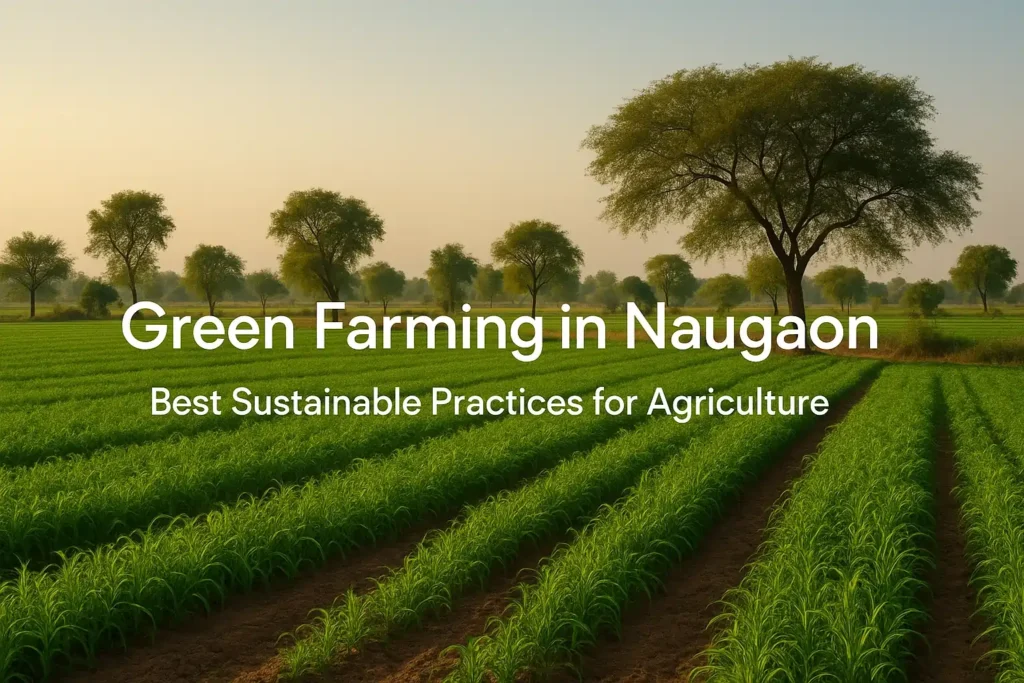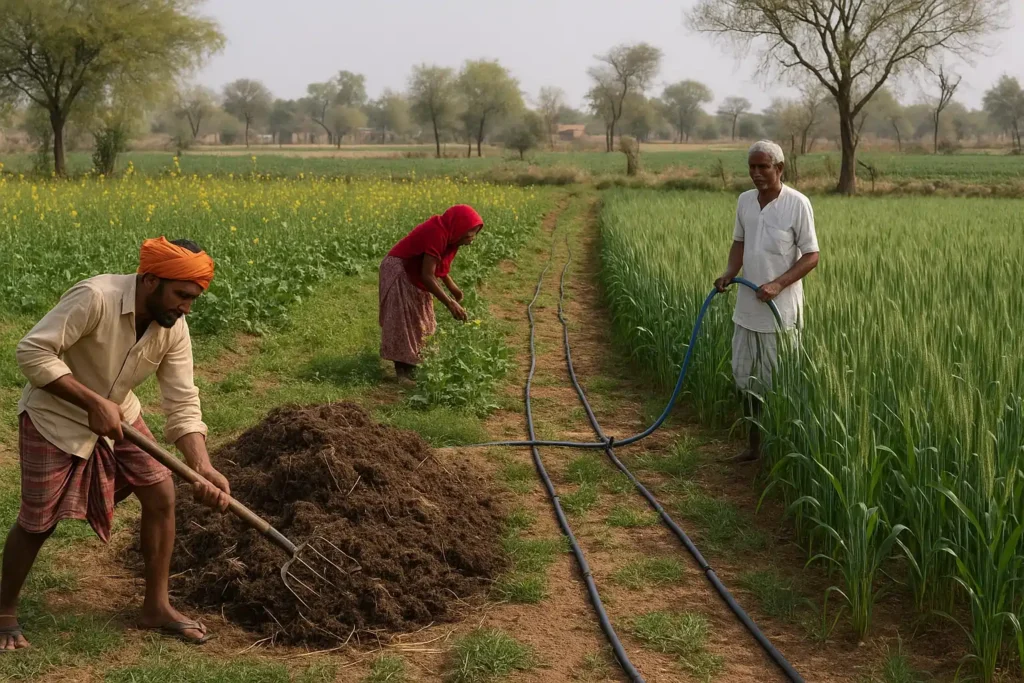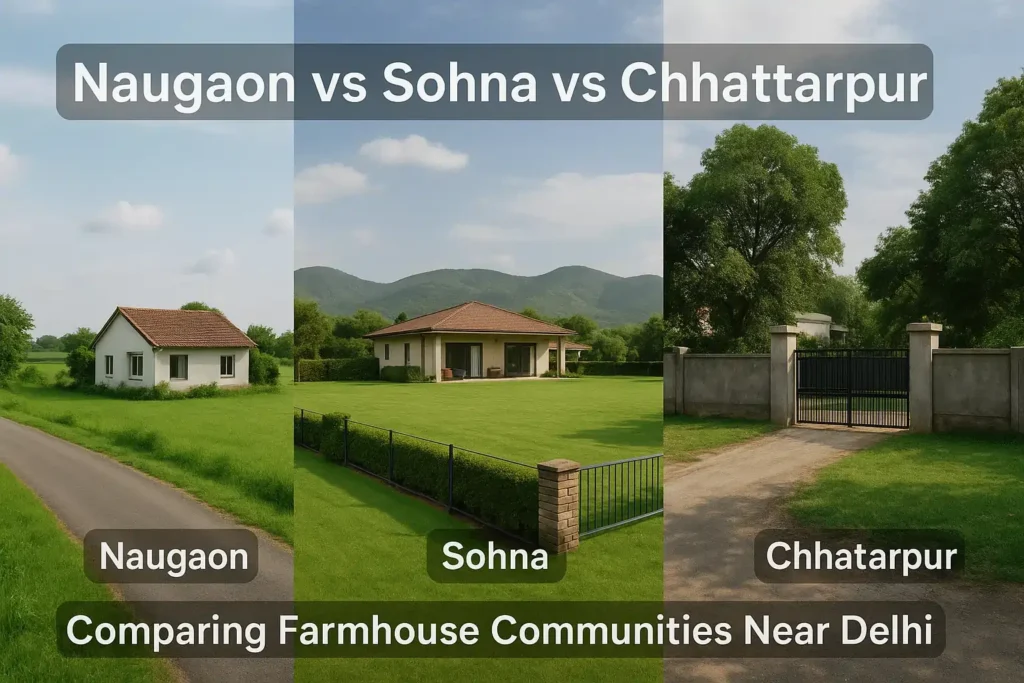Naugaon has been an established location of fertile lands and tranquil environment. In this modern day world though, farming has not only become a process of crop growing. Productivity and environmental responsibility are becoming the same thing as far as farmers are concerned. Green farming, also known as sustainable farming is a practice that is gaining relevance in Naugaon because it guarantees healthy soil, increased yield, and long-term gains to the farmers and the environment.
Through this blog, we shall discuss the importance of green farming in Naugaon and the best sustainable practices that can be deployed by the local farm owners.

Why Green Farming Matters in Naugaon
Naugaon is a state with an agriculture that is intimately related to natural resources (soil, water, climate). Sustainable farming is no longer an option as the issues related to climate change, soil degradation, and the high level of chemicals usage become more and more significant
- Preserve soil fertility for future generations.
- Reduce dependency on harmful pesticides and fertilizers.
- Improve crop resilience against weather changes.
- Increase long-term profitability for farmers.
Best Sustainable Practices for Naugaon Farmers
1. Organic Fertilizers and Composting
Farmers could use organic compost, cow dung manure, and bio-fertilizer instead of chemical fertilizers, which are mostly relied on. These enhance the health of the soil and minimise input costs. Case Study: A number of farmers in neighboring Alwar have reported that since they moved to composting, the soil has become healthy.
2. Crop Rotation and Mixed Farming
The rotation of crops such as wheat, mustard, and pulses is to sustain nutrients in soils and minimize the chances of white weeds. Mixed farming (crop cultivation and livestock keeping) also provides stability in earnings and improved utilization of land.
3. Rainwater Harvesting and Efficient Irrigation
Water shortage is an increasing problem. Methods such as drip irrigation and sprinklers conserve water and crops receive the amount needed. In Naugaon, rainwater harvesting tanks are already being utilized in order to recharge groundwater in some villages.
4. Agroforestry and Tree Plantation
Crops and trees are also planted to conserve the soil, to offer shade and to enhance biodiversity. Fruit trees such as guava or mango have the potential to earn the farmers additional revenue and also preserve the land.
5. Natural Pest Control
Chemicals can be minimized with the use of neem oil, pheromones traps, and biopesticides. This does not only ensure that crops are safeguarded but also makes the food healthier to the consumers.
6. Adopting Modern Green Technologies
Technology is contributing immensely; solar-powered pumps, environmentally friendly farming tools are just a few to name. Naugaon farmers also have the option of exploring government schemes which subsidize such equipment.
Challenges in Adopting Green Farming
While the benefits are clear, some challenges remain:
- Initial setup costs for organic inputs or drip systems.
- Lack of awareness and training.
- Limited access to sustainable farming markets.
However, with proper guidance, government support, and farmer-to-farmer learning, these barriers can be overcome.
Future of Green Farming in Naugaon
Naugaon may be a model farming hub in Rajasthan in case more farmers go green. The change will not only ensure that the environment is safe but will as well create opportunities in organic markets, eco-tourism and agri-business.

Green farming is not an alternative but the future of agriculture in Naugaon. Local farmers can win the battle by adopting sustainable methods such as composting, crop rotation, effective irrigation and use of natural pesticides in controlling pests and ensuring their survival.
Farm sustainability will make Naugaon a fertile, productive and beautiful place to its future generation.



